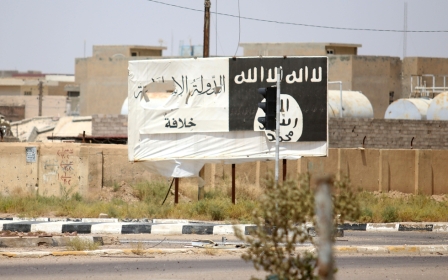Britain risked scores of civilian lives to target 'Chemical Ali' in Basra

British military and political leaders approved an attack that balanced killing and wounding scores of Iraqi civilians against the death of one senior Baathist figure, the Chilcot report into the Iraq War has revealed.
The attack in Basra in April 2003 killed more than a dozen civilians, including 10 members of one family. But it did not kill the intended target - Ali Hasan al-Majid, also known as Chemical Ali.
The Chilcot report, released on Wednesday, disclosed operational details of how British leaders calculated that the death or injury of up to 51 civilians would have been worth the "advantage" of al-Majid's elimination.
In "section 17, civilian casualties," the Chilcot report says that on 4 April, the UK military undertook a "rapid collateral damage assessment" that suggested - excluding the intended targets - seven houses may be damaged and there would be between 39 and 51 civilian casualties, depending on the time of day.The military commander in charge of operations, Air Marshal Brian Burridge, advised Geoff Hoon, then defence secretary, that "the expected civilian casualties... would not be excessive in relation to the direct and concrete military advantage... the attack is therefore capable of being assessed as proportional".
The UK leadership then informed US military command, Centcom, which agreed to the attack on 5 April, but requested the reduction of the ordnance from 1,000lb bombs to exclusively 500lb bombs - in order to reduce collateral damage.
Eventually, at 5.30am, US forces dropped seven bombs on the target after receiving information that al-Majid was in the area, Chilcot reported.
Majid escaped the attack unharmed, but Abed Hassan Hamoudi, a Basra resident, later said that 10 members of his family, including four children, were killed. A neighbour said an additional seven children had been killed.
Hamoudi later said in a letter to the “Head of Coalition Forces” in Basra that he would be pursuing compensation for the deaths of his family members and that he had authorised his son, Sudad, to pursue a case.
A Ministry of Defence official later provided the then-British armed forces minister, Adam Ingram, a draft reply to inquiries from Sudad over the bombing in which he described the deaths as an “unavoidable consequence” of the strike.
The official added that “in line with previous operations we would not expect to offer compensation for damages resulting from legitimate targeting during hostilities”.
Hamoudi now lives with his remaining family members in Manchester, having fled post-war Iraq.
The Chilcot report said that an initial battle damage assessment indicated "no collateral damage had been observed" after the attack.
A further report stated that the target residence had been completely destroyed, but Majid was believed to have escaped. The attack had damaged other properties and caused civilian casualties, it said.
Later, Ingram was told that Hamoudi's claims were probably true as two of the seven bombs had missed their intended targets.
In an interview with the BBC in 2016, Hamoudi said that US President George W Bush and former UK prime minister Tony Blair should bear responsibility for the plight of Iraqis and that they should be "taken to court and judged".
"People in Basra have now started to say they were better off in those days under Saddam," he added.
The release of the Chilcot report on Wednesday after a seven-year wait has sparked renewed scrutiny of the UK's actions during and in the run-up to the war.
Some British MPs have called for Blair to be "impeached" and face criminal charges for misleading the government and the British public over the war.
Iraq Body Count (IBC), a volunteer-led organisation that has been counting deaths resulting from the war since 2003, said on Thursday that the report was "as disappointing as it ever was" for Iraqis who "might have hoped for an official investigation that finally detailed the full extent of their suffering and consequent needs".
The report shows that the UK government, the organisation said, saw civilian casualties "not as something which victims of armed violence and their families might reasonably expect an answer to, but as a political tool in the 'blame game' of the war".
IBC has urged the government to work with all parties, particularly Iraqis, "to arrive at a full and properly respectful public record of the casualties from the invasion to the present day".
This article is available in French on Middle East Eye French edition.
Stay informed with MEE's newsletters
Sign up to get the latest alerts, insights and analysis, starting with Turkey Unpacked
Middle East Eye delivers independent and unrivalled coverage and analysis of the Middle East, North Africa and beyond. To learn more about republishing this content and the associated fees, please fill out this form. More about MEE can be found here.





